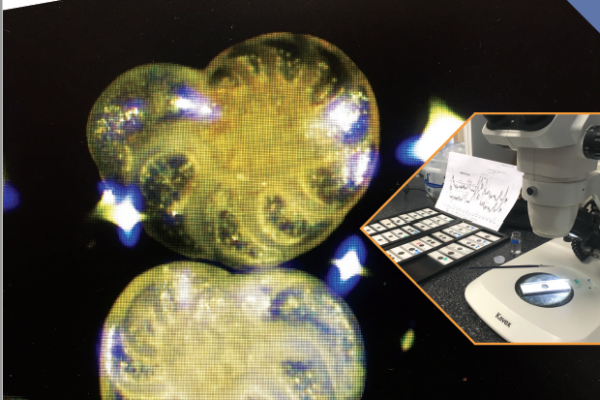Category: News

Annual Review 2023
Read More
Project Title: Enhanced electrocatalytic conversion of CO2 into useful chemicals: how and why do cations matter?
In the midst of the current climate crisis, it is crucial to continue developing strategies for cutting global emissions, if we are to achieve a net-zero carbon landscape in the near future. Whilst lowering CO2 emissions through the implementation of renewable energy generation, conversion and storage technologies is critical, another important way in which to further reduce emissions is by efficiently converting the CO2 we produce back into valuable fuels and feedstock chemicals. The most efficient way to do this is electrochemically.
Recent studies indicate that electrolyte cations play an important role, in determining the speed and distribution of products achieved during electrocatalytic CO2 conversion However, there is currently a lack of supporting, quantitative experimental data that includes the complimentary influence of electrolyte solvents, electrode chemistries and surface structures. In this project, we will use a novel combination of electrochemical, optical, and scanning probing microscopy methods to gain a fundamental and holistic insight into the effects of changing the main components of an electrochemical reactor – namely, the electrode (which contains the electrocatalyst) and the electrolyte – on the efficiency of CO2 conversion, with a focus on the electrolyte cation.

Awarded: Carnegie PhD Scholarship
Field: Chemistry
University: University of Aberdeen